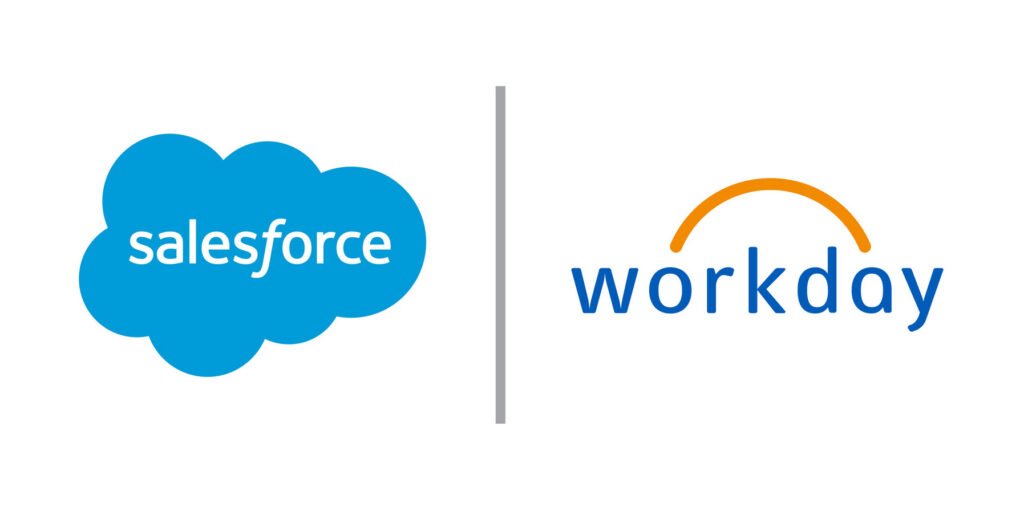
In the software industry, Workday and Salesforce are two prominent platforms frequently discussed in the realm of enterprise business software.
Both are market leaders within their respective domains, offering robust tools designed to optimize various organizational processes. To understand their unique value propositions, it is essential to examine their core functionalities and the key distinctions between them.
In this blog, let us discuss some of the key features of both Workday and Salesforce, compare them, and identify which of the two is a perfect fit for your business! Know more about it with Workday Training.
What is Workday?
Workday is a company specializing in cloud-based software systems for businesses’ human resources and finance departments. Workday was established in 2005, and the company’s mission is to make the complicated aspects of human resources and finances easier.
Key Features of Workday:
- Human Capital Management (HCM): Oversees matters related to the employees, such as records, salaries, welfare, and hiring.
- Financial Management: They assist business organizations in accounting services, financial planning and control, procurement of goods and services, and afterward expensing of the acquired items.
- Planning: Provides budgeting solutions, forecast, and financial planning solutions.
- Analytics and Reporting: Offers expertise and delivers reports that can give a clear understanding of the business needs.
Workday is well appreciated for the simplicity of its interface. Therefore, its capacity to combine human resource information technology with financial information, hence supporting the effective running of organizations and companies.
What is Salesforce?
Salesforce was started in 1999 and is cloud-based customer relationship management software (CRM). It makes customer relations, sales, and customer service easier and more efficient in businesses or companies.
Key Features of Salesforce:
- Sales Cloud: Sales funnel activities such as generation of leads, follow-ups, and closing of sales.
- Service Cloud: Offers functionality for the support and services desk.
- Marketing Cloud: Assists companies in generating and administering promoting efforts.
- Commerce Cloud: Supports the business’s e-commerce and online sales operations.
- Analytics Cloud: Provides data analysis & Data reporting solutions.
- AppExchange: Third-party application directory that allows it to become a platform to support more functionalities for salesforce.
It is famous for its strong CRM solution and adaptability, both of which enable organizational adaptation of the application.
Related Article – Salesforce CRM Tutorial
Comparing Workday and Salesforce
It is significant to note that, despite the fact that Workday is primarily an HR and financial management system and Salesforce a CRM system, the two have some things in common. Both of them are web-based; therefore, they do not need customers to have local hardware equipment installed. It also has a great variety of customization options and has been developed with a focus on usability. Nevertheless, the significant difference in their essence and the people using them can be identified.
1. Core Functionality
Workday: Specializes in people management or HR and the financial management of an organization. So, it is suitable for organizations in need of an efficient way to manage their human resource activities, store staff records, and commit financial transactions. Workday’s main benefit is that it allows the combination of HR and financial data, enabling organizations to gain insight into their functioning.
Salesforce: Underlies customer relationship management. Ideally suited for organizations that are seeking to enhance sales, specifically manage the relations between the company and the customers. Salesforce’s biggest benefit is in the area of customer relationship management, which is essential for any business.
2. Target Users
Workday: Usually, it is applied in the human resources and finance departments. The software is adopted by mid- to large-sized companies, which require complex HR and financial management tools. It is used in various industries like healthcare, education, and technology to make workforce and financial management easy.
Salesforce: Used in the fields of sales, marketing, and customer service. Any business, whether small or big, should consider sales force automation, particularly when handling its customers. Salesforce is a global application implemented in a wide range of industries, including retail, finance, manufacturing, and others.
3. Customization and Integration
Workday: Provides a high degree of integrative capabilities, enabling companies to adjust the solution to the organization’s HR and financial management requirements. Workday also works with different applications, thus accommodating the need for an integrated environment.
Salesforce: Known for its high level of customization, very flexible. Salesforce is fully adaptable to the needs of a business; organizations can adjust it to their sales processes and clients’ management. Salesforce’s AppExchange offers users the ability to access and implement thousands of third-party apps that can complement and extend Salesforce.
4. User Experience
Workday: It has been explicitly developed to be as easy to use as possible for the end consumer. Moreover, it has very understandable window-dressing to help the HR and finance specialists work with the platform optimally. Workday also has different mobile applications so that the user can access the given platform from anywhere.
Salesforce: It is also easy to use but can reveal more arrows due to the range of functionalities and settings. The management of Salesforce offers users various training tools and assistance that will make the working process easier. Similar to Workday, Salesforce can use mobile applications to work during travel.
5. Pricing
Workday: Typically has a subscription pricing model that can be contingent upon the number of users or the chosen modules. Workday is usually more costly, and as such, it is better suited for large companies with more extensive requirements when it comes to HR and finance.
Salesforce: Is also based on the subscription model when it comes to pricing. The pricing policy is based on the edition of Salesforce and the number of users needed for the application. There are different levels of the salesforce, which start from the most simple and can be upgraded to more complex depending on the needs and size of the enterprise.
Use Cases and Scenarios
Now that you know some of the differences between Workday and Salesforce, let’s examine some situations in which Workday might be a better option and others where Salesforce is more appropriate.
Case 1: A Company with Emerging HR and Financial Requirements
Suppose we consider an upcoming tech firm that is in a situation where they have to employ a large number of employees and deal with a large number of running financial transactions daily. The company is expanding its workforce and is in the process of recruiting new employees most of the time; therefore, the company requires an efficient system for processing employee information, payment structures, and other associated benefits. They also need correct financial data reporting and correct budgeting to aid their growth.
In this case, the appropriate solution with similar features would be Workday. The HCM module of Workday allows the solution to all the tasks related to human resources, from employment and staffing to staff payments. They are also launching what they call the Financial Management Module, which shall assist in the accounting, budgeting, and even reporting of the entire company’s financial.
Scenario 2: A Large Enterprise Needing Both HR and CRM Solutions
For example, let us imagine that a giant company is looking for solutions that will cover both the sphere of human resources management and customer relationship management. The company reports a large number of employees and numerous intricate financial transactions but also intends to enhance its sales and customer service sections.
In this case, the enterprise might use both Workday and Salesforce to determine its software needs. Workday will perform the HR and financial management tasks in order to guarantee that the data involving the employees and the company’s financial aspects are managed effectively. Google will handle the search functionality, while Salesforce will cover the CRM needs and improve the sales processes and customer engagement. When both of the platforms are used in conjunction, one is able to procure an all-encompassing solution that will cater to all the needs of the business.
Integration Possibilities
Though Workday and Salesforce serve a distinct purpose, both can be combined in a functional flow that allows the company to receive and transmit information seamlessly. Integrating Workday with Salesforce can offer several benefits:
- Unified Data: Integration of HR, financial records, and customer databases can also enhance the understanding of the business and its operations.
- Streamlined Processes: It can enhance processes where HR processes are linked with CRM strategies throughout the organization. For instance, in case a new employee is hired and entered into Workday, it becomes possible to allow the information to flow automatically to Salesforce and be used by the sales and customer service personnel.
- Improved Collaboration: It enhances the relationship between HR, finance, and sales departments since the four functions are closely related. Integrating data also lessens repetitive data input and consequently reduces the occurrence of errors.
- Enhanced Reporting: Joining both platforms enables the causation of more robust and informative reports than the ones generated separately. Organizations can use reasonable indices to understand how various HR and financial factors affect sales and customer satisfaction.
Conclusion: Picking the Right One
Workday and Salesforce are both good platforms, so the deciding factor would be what your business requirements are and what you value most. Here are some key points to consider:
Therefore, if your major concern is administrative and economic functions such as human resources, then Workday is the best option. It has complete HR and financial management features that will automate your functions and give you crucial information about your organization.
If you work on sales processes, customer relations, or customer service – then, Salesforce will be perfect for you. It has a highly capable sales feature which would assist you to develop firm customer relations and increase your sales.
In conclusion, it’s up to your business needs, your budget, and your strategic vision of how the CMS will look in the future. Workday and Salesforce are both very functional and useful for business, so it is a question of planning and evaluating your needs for your business strategy and choosing the one that will fit your needs the most.








